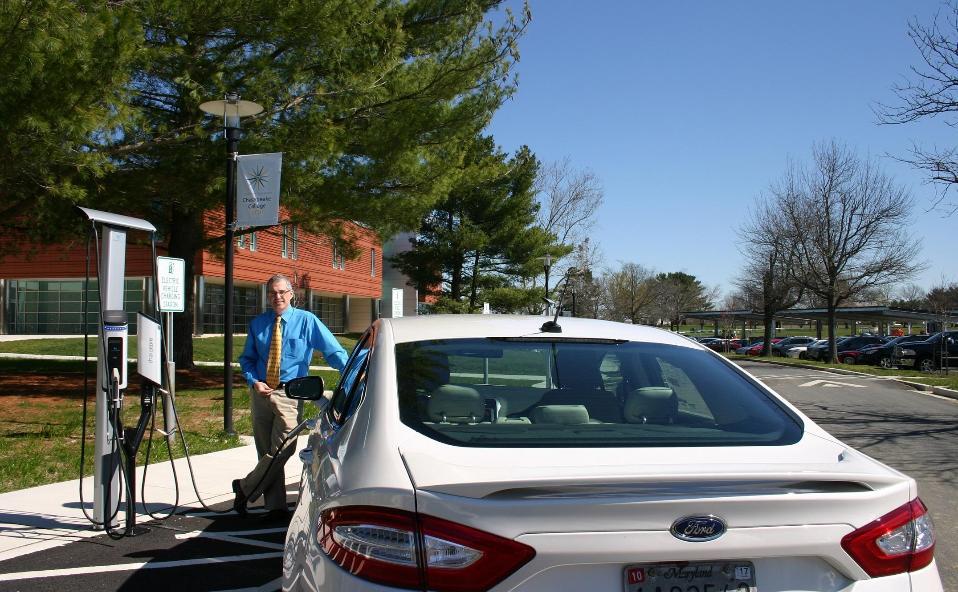Chesapeake College was recognized as a national leader in sustainability with the Association of American Community Colleges Green Genome 2016 award for Strategic Partnerships. Chesapeake was one of only nine colleges in the country recognized with the prestigious honor.
The award carries a $10,000 prize for Chesapeake, which will be used for new sustainability initiatives at the college. “We’re honored to receive this award, and to be included with some of the most environmentally progressive institutions in the nation. Chesapeake has been leading by example in sustainability efforts on the Eastern Shore. It is part of our mission to prepare students for the future and to foster responsible stewardship of our natural resources,” said Chesapeake President Barbara A. Viniar.
Two awardees were selected in each of four categories: Governance, Program Design and Delivery, Strategic Partnerships, and Community Engagement. In addition, one awardee was chosen as the Overall winner. The colleges recognized for their achievements are:
· Lewis & Clark Community College, IL – Overall
· College of Lake County, IL – Governance
· Northeast Community College, NE – Governance
· Johnson County Community College, KS – Program Design and Delivery
· Northeast Texas Community College, TX – Program Design and Delivery
· Chesapeake College, MD – Strategic Partnerships
· Guam Community College, Guam – Strategic Partnerships
· Cedar Valley College, TX – Community Engagement
· Lincoln Land Community College, IL – Community Engagement
Greg Farley, director of the Chesapeake College Center for Leadership in Environmental Education (CLEEn), said Chesapeake’s sustainability success is the result of campus commitment and key community partnerships.
“From renewable energy generation and storage to sustainable agriculture, from watershed restoration to landscape architecture, from electric car charging to energy efficiency, we have been a success because off-campus companies, nonprofits, and agencies have been willing to partner with us,” Farley said. “Our collective efforts are transforming our campus, both in the classroom and on the ground, and we are grateful.”
Dr. Viniar added, ”We’re proving that a small college can make a big difference in bringing sustainable initiatives to a rural area. We’ve focused on building partnerships with other organizations to harness the collective power of our efforts.”
For more information about sustainability at Chesapeake, please contact Greg Farley at [email protected]




Write a Letter to the Editor on this Article
We encourage readers to offer their point of view on this article by submitting the following form. Editing is sometimes necessary and is done at the discretion of the editorial staff.